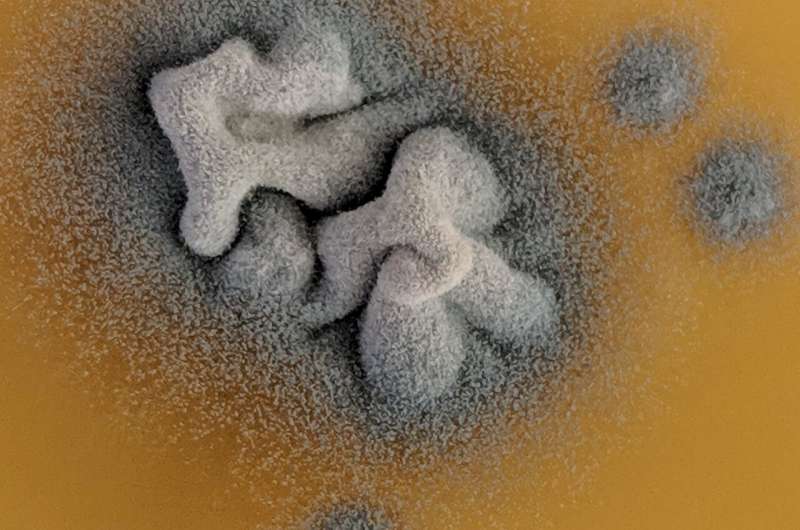Researchers' breakthrough in tackling challenge of antifungal resistance

Ground-breaking work by university experts in Tennessee, Texas and Swansea is helping develop a better understanding of the growing threat posed by antifungal drug resistance.
Invasive aspergillosis is a devastating disease caused by breathing in small airborne spores of the fungus Aspergillus fumigatus and it is a condition where drug resistance has been encountered.
In a healthy person these spores are destroyed by the body's immune system but in those with a weakened immune system—such as following organ transplantation or in someone with a lung condition such as asthma or cystic fibrosis—they can trigger a range of problems including infections.
Every year aspergillosis leads to more than 200,000 life-threatening infections and increasingly resistance to vital antifungal drug treatments makes those infections harder to treat.
National Institutes of Health (USA) funding supported a collaboration between the University of Tennessee, the University of Texas and Swansea University as part of a $2 million, five-year research programme. This support enabled investigation of resistance to the triazole class of antifungal drugs used for treating the disease
A new paper, published in the prestigious American Microbiology Society journal mBio, reveals how researchers have been able to identify a previously uncharacterised genetic mutation in clinical isolates that leads to resistance.
Professor Jarrod Fortwendel, from the University of Tennessee, said: "As with bacteria, antifungal drug resistance is a real challenge facing medicine.
"Understanding how the fungus becomes drug resistant is important for designing changes in therapy to overcome aspergillosis."
Professor Dave Rogers, also from the University of Tennessee, added: "It is very important that the research continues and we find out more about why it is happening and how we can tackle it for the future."
Swansea University's Professor Steve Kelly, whose experience researching the field of antifungal resistance dates back to 1984, described the findings as a real breakthrough.
He said: "This paper is the result of a lot of hard work and we are delighted to now be able to publish our findings."
The paper Mutations in hmg1, challenging the paradigm of clinical triazole resistance in Aspergillus fumigatus is published in mBio.
More information: Jeffrey M. Rybak et al, Mutations in hmg1, Challenging the Paradigm of Clinical Triazole Resistance in Aspergillus fumigatus, mBio (2019). DOI: 10.1128/mBio.00437-19
Journal information: mBio
Provided by Swansea University

















